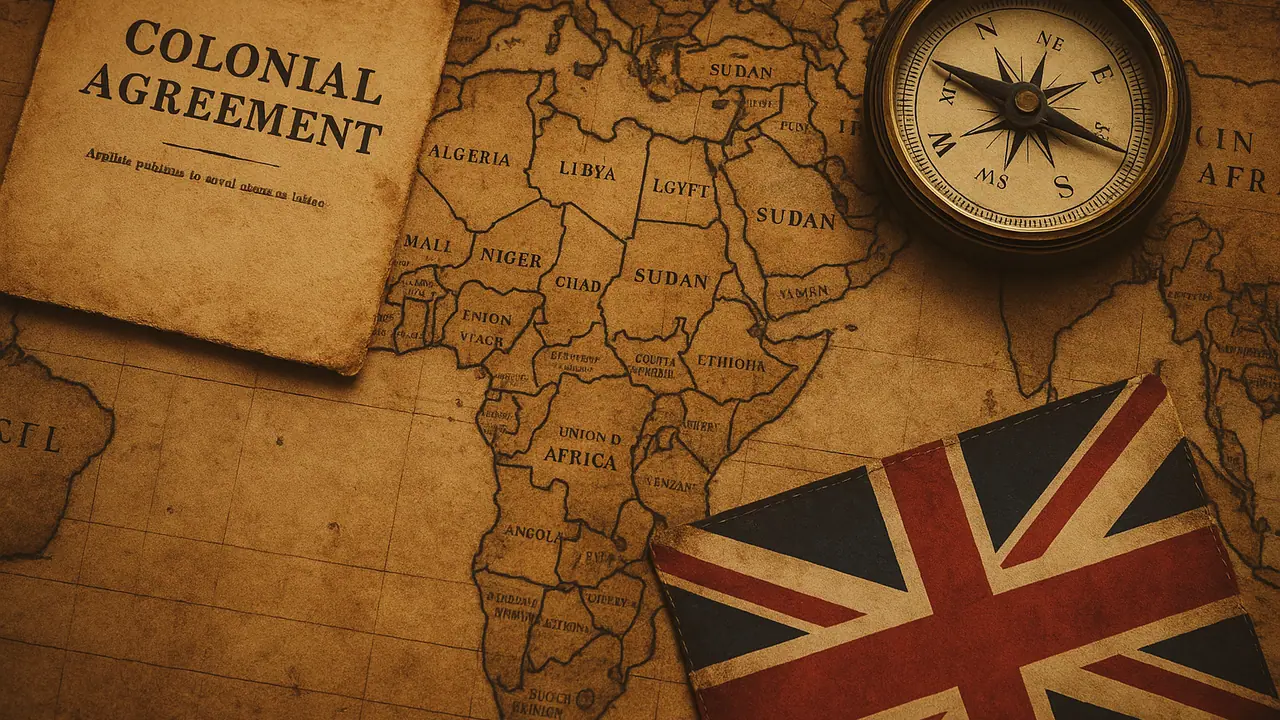Colonial borders still shape today’s global conflicts. Drawn without consent, these lines continue to fuel wars, identity crises, and political instability across Africa, Asia, and the Middle East
It has been more than 70 years almost that the sun of European colonialism set, but the world map that we see today is a stark reminder of the imperial role. While straight lines divide deserts in North America, the carved up territories of the middle-east and South Asia, these borders are not bygone relics of the past. They are rather very active and often times a source of tension, conflict, in the modern world.

The forced geography, the patchwork of states that emerged after decolonization, often inherited boundaries that ignored linguistic, ethnic, tribal and religious realities. The result was insurgencies, border conflicts, fragile states and diplomatic road blocks all around the world.
These borders are not history rather these are geopolitics in motion. The borders drawn at the boardrooms of London, Paris and other European cities continue to wreck havoc on people's lives and some have become the most dangerous fault lines of the 21st century.
The Colonial Cartographers
During the 19th century age of imperialism, European powers divided huge territories of land without any consultation with the local population- the population whose lives would change overnight. European powers divided up Africa like kids do to cake. The boundaries that resulted were drawn to suit European administrative convenience and political control. It discarded ethnic or cultural realities.
Let's take the Durand line for example, the line drawn in 1893. It divided British India and Afghanistan. It sliced through the Pashtun and Baloch heartlands. It split families and clans between modern Pakistan and Afghanistan. Afghanistan continues to disagree with the Durand line as it's border.
The Sykes-Picot agreement of 1916, divided the Ottoman lands between Britain and France during World War 1. The boundaries drawn gave birth to the modern states of Iraq, Syria, Jordan and Lebanon - the sowed the seeds for countless conflicts over identity, ethnicity, sovereignty and legitimacy.
These divisions were not just arbitrary in nature. It paved the way for modern political violence.
Postcolonial Inheritance: Borders Without Nations
When the colonial powers eventually withdrew in the mid-20th century, they left behind nation-states that were often weak, artificial, and riven with internal divisions. The international community, led by the newly established United Nations, endorsed the principle of uti possidetis juris—the idea that newly independent states must inherit their colonial-era boundaries to avoid chaos.
Take Sudan, once Africa’s largest country. Its borders contained dozens of ethnic and linguistic groups, many with little in common. Decades of marginalization and violence culminated in the secession of South Sudan in 2011—an independence that brought hopes of peace but instead plunged both nations into further instability.
Or look at Nigeria, where the British merged disparate regions—the Muslim north, Christian and animist south, and oil-rich Niger Delta—into one colonial entity. The country has since battled a civil war (the Biafra secession), terrorism (Boko Haram), and persistent ethnic tensions.
In many parts of the postcolonial world, the “nation” and the “state” remain misaligned—held together less by shared identity than by political coercion.
Frozen Conflicts and Perpetual Flashpoints
Colonial-era borders are not just abstract legacies—they are flashpoints for violent conflict even today.
Kashmir: The Partition that never ended
As the sun dawned on the newly created state of India, an eclipse was seen in the near future. The bloody partition that followed marred away the happiness of Independence. The border conflict that followed after Kashmir's ambiguous accession was simply fueled by British haste and political indecision. The conflict lingers even today between two nuclear armed countries and is now divided by a de facto line of control. The eerie peace is often broken resulting in tension and diplomatic failure between two countries.
Israel-Palestine: A Colonial Script Replayed
The Balfour declaration of 1917 laid out the foundation for today's devastating Israel-Palestine conflict. The British promises to both Jews and Arabs combined with the delayed decolonization left a humanitarian crisis. The legacy of the British rule lives on in the language of occupation, mandate and settler colonialism.
Ethiopia-Eritrea: Colonial Treaties Turned War
Italian colonialism shaped the complex borders between Ethiopia and Eritrea, ultimately triggering a brutal border war from 1998 to 2000. Even after a peace agreement in 2018, tensions linger, and border demarcation remains fraught, influenced by colonial-era maps and treaties.
Why Borders Matter in Today’s Global Order
Borders are not just lines dividing different political landscapes, it defines citizenship. It gives access to resource, it shapes migration policies and frame national identities. In the age of climate change, forced displacement and transnational terrorism, borders are existential. They serve as guarantees of sovereignty in a world order based on the Westphalian model.
Cost of Colonial Cartography
The price nation states are paying for this inheritance is huge and steep. The protracted conflicts in Kashmir, Palestine, Nagorno Karabakh region is a direct result of this arbitrary lines. The secessionist movements of Scotland, Catalonia, Kurdistan, Biafra and the resulting loss of human life can be directly attributed to this. The refugee crises if the Rohingyas, Tigrayans, Palestinians shows the huge impact of these decisions. The fragile states of Libya, Yemen, DRC are all victims of colonial division and foreign meddling often without understanding the region.
The ghosts of empire walk among us—not as faded memories, but as living realities etched into maps, institutions, and national psyches. We have to live with colonial borders which were never designed for us who have to live within them. The task ahead is not easy: it requires moral imagination, political courage, and above all, humility.
While we may live in a post colonial world, we do not yet live in a post-imperial one as the impact of it effects us direly even today.


